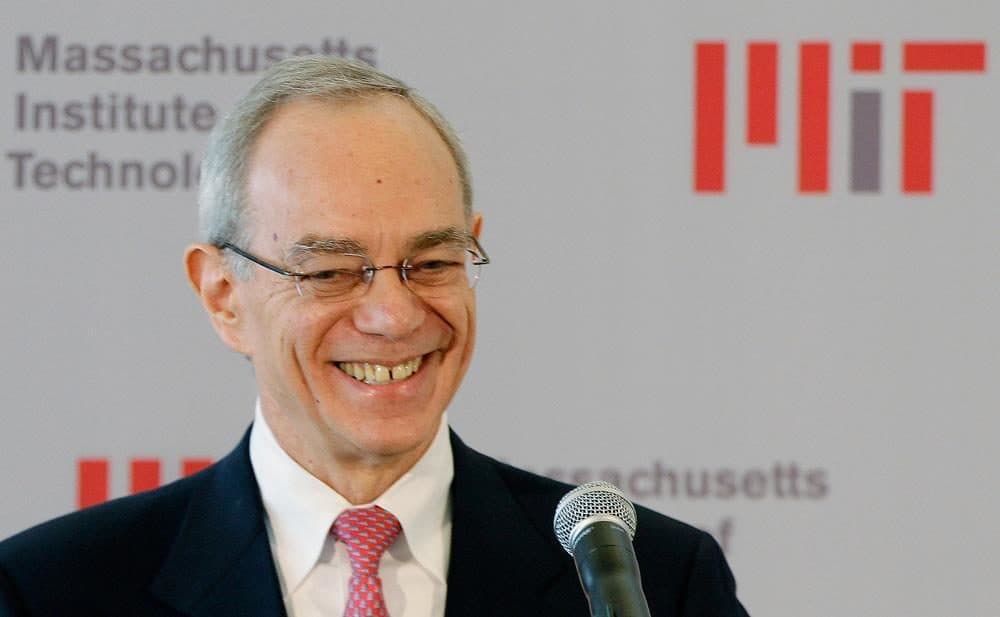Advertisement
MIT president steps down after decade of leading the institution

Massachusetts Institute of Technology President L. Rafael Reif is stepping down after more than 10 years at the helm, the school announced Thursday.
L. Rafael Reif, 71, said he will leave his post at the end of 2022. He plans to take a sabbatical before returning as a faculty member in the school's electrical engineering and computer science department.
“Thanks to the exceptional efforts and impact of the people of MIT in research, education and innovation, the institute consistently ranks among the very top universities in the world,” he wrote in a statement.
Reif became president of the school in 2012 after serving as its provost for seven years. He has been at MIT since 1980, when he was hired as an assistant professor in electrical engineering.
As president, he’s credited with bolstering the school’s stature as a hub of tech innovation.
His achievements include the creation of a new business incubator in 2016 to help scholars turn big ideas into companies. Known as The Engine, it has raised $430 million for 27 companies, the school said.
In 2018, he announced a $1 billion investment in artificial intelligence and computing, centered around a new College of Computing to apply AI technology across all academic disciplines.
Under his watch, MIT has “has expanded the boundaries of the basic and applied sciences that will benefit of our world for years to come,” Diane Greene, chair of the school’s governing body, said in a statement.
Politically, Reif frequently clashed with the Trump administration over immigration policies that threatened to limit academic exchange.
When the Trump administration imposed a policy that would have barred international students from taking classes entirely online amid the COVID-19 pandemic, MIT and Harvard University filed a lawsuit challenging the rule. The suit gained support from dozens of U.S. colleges and led to the policy's withdrawal.
Advertisement
Reif was also a leading voice in higher education lobbying in favor of the Deferred Action for Childhood Arrivals and its protections for those brought to the U.S. as children. And amid federal efforts to combat academic espionage from China, he defended Chinese scholars who he said were being unfairly stigmatized.
Reif and MIT faced sharp scrutiny in 2019 amid revelations that one of the school's prestigious research labs had benefited from close fundraising ties with disgraced financier Jeffrey Epstein.
The uproar led to the resignation of the famed MIT Media Lab. A subsequent investigation ordered by the school found that Reif was not involved in decisions to accept Epstein's funding, but it also revealed that Reif had personally signed a letter thanking Epstein for a financial donation in 2012.
Responding to the finding, Reif called it a “standard acknowledgment letter” and said he did not remember signing it, although he acknowledged it was his signature.
Financially, MIT saw continued growth under Reif's tenure. The institute's endowment grew from $10 billion in 2012 to $27 billion in 2021, continuing its position as one of the nation's wealthiest colleges.
Originally from Venezuela, Reif came to the U.S. to earn a doctorate in electrical engineering at Stanford University. His parents were Jewish refugees who fled the Nazi regime in eastern Europe.
This article was originally published on February 10, 2022.